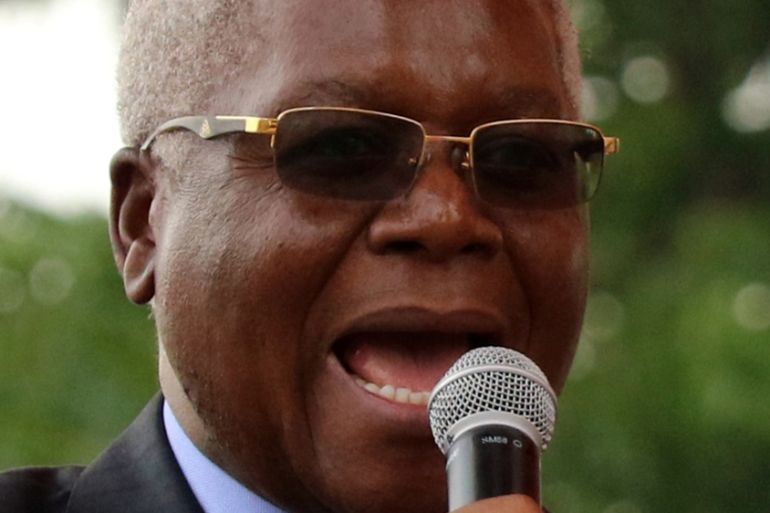Zimbabwe: Army operation that led to Mugabe ouster ends
Allies of former president have also been arrested as part of ‘Operation Restore Legacy’ that saw Mugabe quit his post.

Harare, Zimbabwe – The military in Zimbabwe have announced the end of an operation that saw the army place former President Robert Mugabe under military confinement resulting in his resignation.
The announcement came after the inauguration of President Emmerson Mnangagwa on Friday.
Keep reading
list of 4 items‘Looting par excellence’: Mugabe family millions anger Zimbabwe
Opposition feels police heat ahead of voting in Zimbabwe
In Zimbabwe, reporter’s conviction sparks fears of renewed abuse
As part of the mission named Operation Restore Legacy launched on November 15, the African country’s military also arrested allies of Mugabe, including former Minister of Finance and Economic Development.
Robert Mugabe resigned last week after nearly four decades as the country’s leader following his dismissal as the leader of the ruling ZANU-PF party.
Army spokesperson Colonel Overson Mugwisi said there were some government officials still being held in military custody, but details on those detentions would be given at a later stage.
Earlier, former Minister of Finance and Economic Development, Ignatius Chombo, arrived at the Harare Magistrates Court for his bail hearing under heavy military escort and in handcuffs.
Chombo, an ally of the former president, was arrested on Friday and charged with corruption and abuse of power. The charges stem from his time served as minister of local government, public works and urban development from 2000 to 2015.
Head of the ZANU-PF Youth League, Kudzanai Chipanga, a close associate of former First Lady Grace Mugabe, also appeared and is due to have his bail hearing later on Monday.
Chipanga faces charges of fraud and slander for his criticism of the head of the Zimbabwe Defence Forces, General Constantino Chiwenga.
Shortly before the military action, Chiwenga issued a caution to the then President Mugabe against the series of purges in the ruling ZANU-PF regime.
‘Dangerous precedent’
This precipitated a military takeover and an operation targeting “criminals” surrounding the former president on November 15.
Mugabe was then held under house arrest, and his eventual resignation led to Mnangagwa taking over as the country’s third president since independence in 1980.
It seems there is selective application of the law depending on whether one has fallen out politically with those who are running things
Amid reports that farms and houses owned by allies of Mugabe were attacked, army spokesperson Colonel Mugwisi said “looting and illegal occupation” of properties “will be met with the full wrath of the law”.
But human rights lawyer Beatrice Mtetwa believes the military superseded the constitution.
Mtetwa told Al Jazeera she was “extremely worried” by the High Court’s recent judgement legalising the military operation, adding that it set a “dangerous precedent” for the future.
“What’s the point of having a constitution if you’re not going to respect what’s in the constitution?” she asked.
The human rights lawyer added that it seemed there was an attempt to “sanitise” the military operations, particularly the detention of certain top officials in the ruling party, including Chombo whose corruption charges date back to the 2000s.
“It seems there is selective application of the law depending on whether one has fallen out politically with those who are running things,” she said.
Mnangagwa, Mugabe’s longtime heir, is expected to name his cabinet shortly.
Follow Tendai on Twitter and Instagram @i_amten